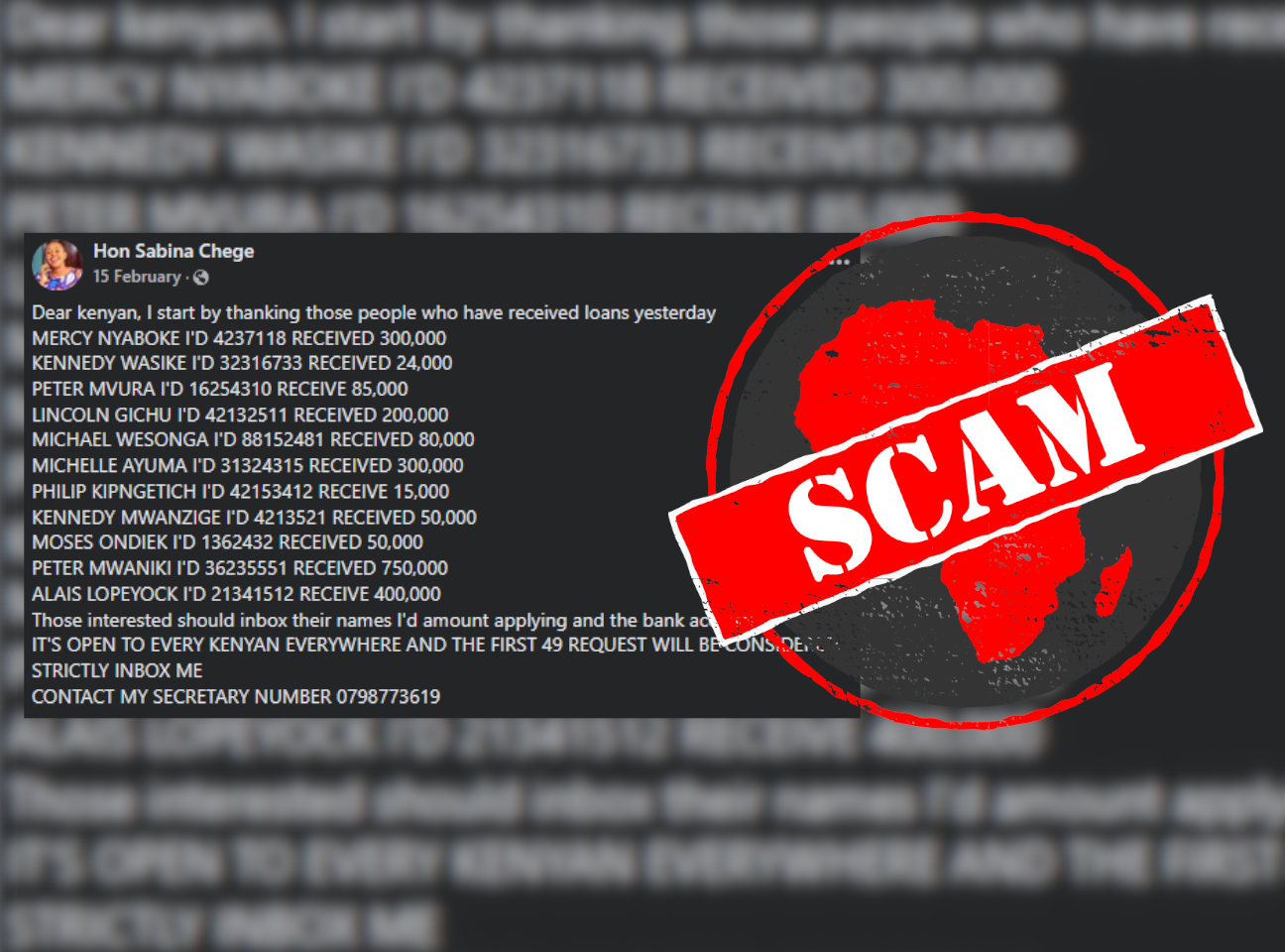IN SHORT: These fraudulent Facebook accounts pretend to be the high-profile woman representative for Murang’a county to offer fictitious loans.
The Facebook accounts Hon Sabina Chege loans, Høñ Sàbína Chege Ke, HON . SABINA CHEGE Soft loans agencies and Hon Sabina Chege have been advertising loan offers.
The accounts use the name and photos of Sabina Chege, the woman representative in the national assembly for Murang’a county, which is about 85.1 kilometres from Nairobi, Kenya’s capital.
According to one of its posts, dated 11 March 2024, the loan amounts range from KSh10,000 to KSh900,000 (about US$70 to $6,500).
The posts also include a telephone number for loan applications.
More loan offers from these accounts can be found here, here, here and here.
But can you trust them? We checked.

Ignore fake accounts
The first indication that these accounts are fake is the poorly written posts. This is uncharacteristic of a lawmaker’s social media platform.
Chege's official Facebook page is verified, as indicated by the blue check mark. However, neither the accounts nor the page offering the loans are verified.
Her verified page makes no mention of loans. It only lists her official and political engagements. It's unlikely that she would have multiple Facebook accounts and use most of them to lend money to people.
The accounts Hon Sabina Chege loans, Høñ Sàbína Chege Ke, HON . SABINA CHEGE Soft loans agencies and Hon Sabina Chege are scams run by imposters.
Read our guide to Facebook scams and how to spot them.
Republish our content for free
For publishers: what to do if your post is rated false
A fact-checker has rated your Facebook or Instagram post as “false”, “altered”, “partly false” or “missing context”. This could have serious consequences. What do you do?
Click on our guide for the steps you should follow.
Publishers guideAfrica Check teams up with Facebook
Africa Check is a partner in Meta's third-party fact-checking programme to help stop the spread of false information on social media.
The content we rate as “false” will be downgraded on Facebook and Instagram. This means fewer people will see it.
You can also help identify false information on Facebook. This guide explains how.




Add new comment